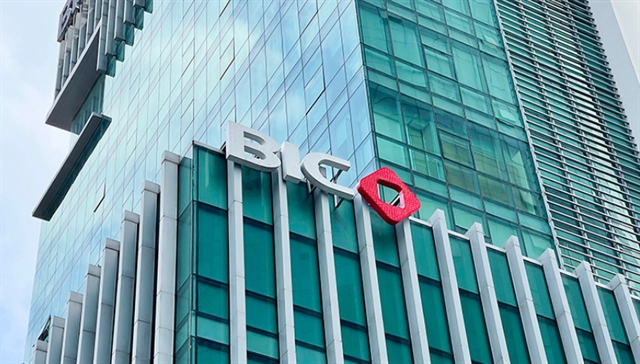As there is still much room for development in the domestic insurance market, the industry’s growth target is set at double-digits.

The non-life insurance sector has seen a flurry of merger and acquisition (M&A) deals over the past two years, partly reflecting the attractiveness and keen competition of the market, which still has room for growth.
DB Insurance, which is one of South Korea’s leading non-life insurance companies, has just completed another step of its purchase strategy to take control of Vietnam National Aviation Insurance Company (VNI).
Expectations of fresh momentum from foreign capital inflows helped VNI's stock prices soar last week.
The transfer value is determined by the two parties' agreement, but it is estimated to be worth about a trillion dong at the current market price.
VNI has a charter capital of VND1 trillion (US$42.2 million), which is the largest charter capital in M&A deals over the past two years. Three noteworthy M&A transactions in the insurance sector occurred during this time, but the parties involved were not experts in the non-life sector.
In particular, VPBank increased its shareholding of OPES Insurance from 6.05 million units to 53.9 million units last November, or 98 per cent of charter capital, by purchasing an additional 47.85 million shares of the company.
Additionally, in the fourth quarter of 2022, Tasco spent more than VND402 billion to acquire Groupama Vietnam's entire share capital, changing the company's name to Tasco Insurance. The plan calls for Tasco to invest an additional VND612 billion in this business.
Previously, in September 2021, BCG invested a total of VND316.5 billion to acquire a controlling interest in AAA Insurance.
Viet Nam was one of the insurance marketplaces with the highest growth rates in the world prior to the COVID-19 pandemic. Statistics for 2011–2019 showed that the country's annual growth rate in insurance premium revenue was 20 per cent while the global average was 3 per cent.
In the two years affected by the pandemic, the growth of insurance premium revenue in Viet Nam was only a few per cent. It grew by 1.7 per cent in 2021 alone.
However, after the pandemic was controlled in 2022, insurance premium revenue recovered quickly, increasing by 16.2 per cent for the whole market, with the non-life segment gaining by 17.3 per cent year-on-year.
Fierce competition
As there is still much room for development in the domestic insurance market, the industry’s growth target is set at double-digits.
The industry's rivalry is still fierce, though.
By the end of 2022, the insurance market had 78 businesses, including 31 non-life insurers, two reinsurers, 19 life insurance businesses, and 26 insurance brokers.
Since the launch of HD Insurance (in 2020), the management agency has not granted more establishment licences, but M&A transactions have altered the fundamentals of many businesses.
Fierce competition leads to high costs for insurance companies to pay for distribution channels. In 2022, profits from the insurance activities of many non-life insurers went down despite higher revenue.
Under competitive pressure, it is difficult for new entrants to find a position.
VPBank's 2022 segment reporting showed that this division's business results posted a slight loss of nearly VND6 billion. Meanwhile, BCG's investment in AAA Insurance also lost nearly VND35 billion out of the total investment capital of nearly VND320 billion in the first financial year of merging.
However, the results of the first few years cannot reflect the results of the M&A deal. After a long enough time, many M&A deals have produced remarkable results.
For example, more than seven years after FairFax Financial Group (Fairfax Asia Limited) bought 35 per cent of shares of BIDV Insurance (BIC) through the offering of new shares through private placement, the rate of return on average equity (ROEA) increased from 7.72 per cent in 2015 to over 12 per cent in 2022, although there was a significant decrease in the first three years.
In 2019, BIC's ROEA saw a significant breakthrough after A.M. Best lifted its credit rating and it received support from Fairfax's information technology experts to invest in a core banking system.
There are also cases of conflicts after a reorganisation of shareholders. For example, at the 2022 Annual General Meeting of Shareholders of Post and Telecommunications Insurance Joint Stock Company (PTI), plans to offer shares to the public and issue shares to increase capital from equity and the issuance of ESOP shares were all vetoed.
In the case of DB Insurance, if the deal is successful, the South Korean insurance company will hold the controlling percentage in VNI, avoiding conflicts between major shareholder groups. — VNS





